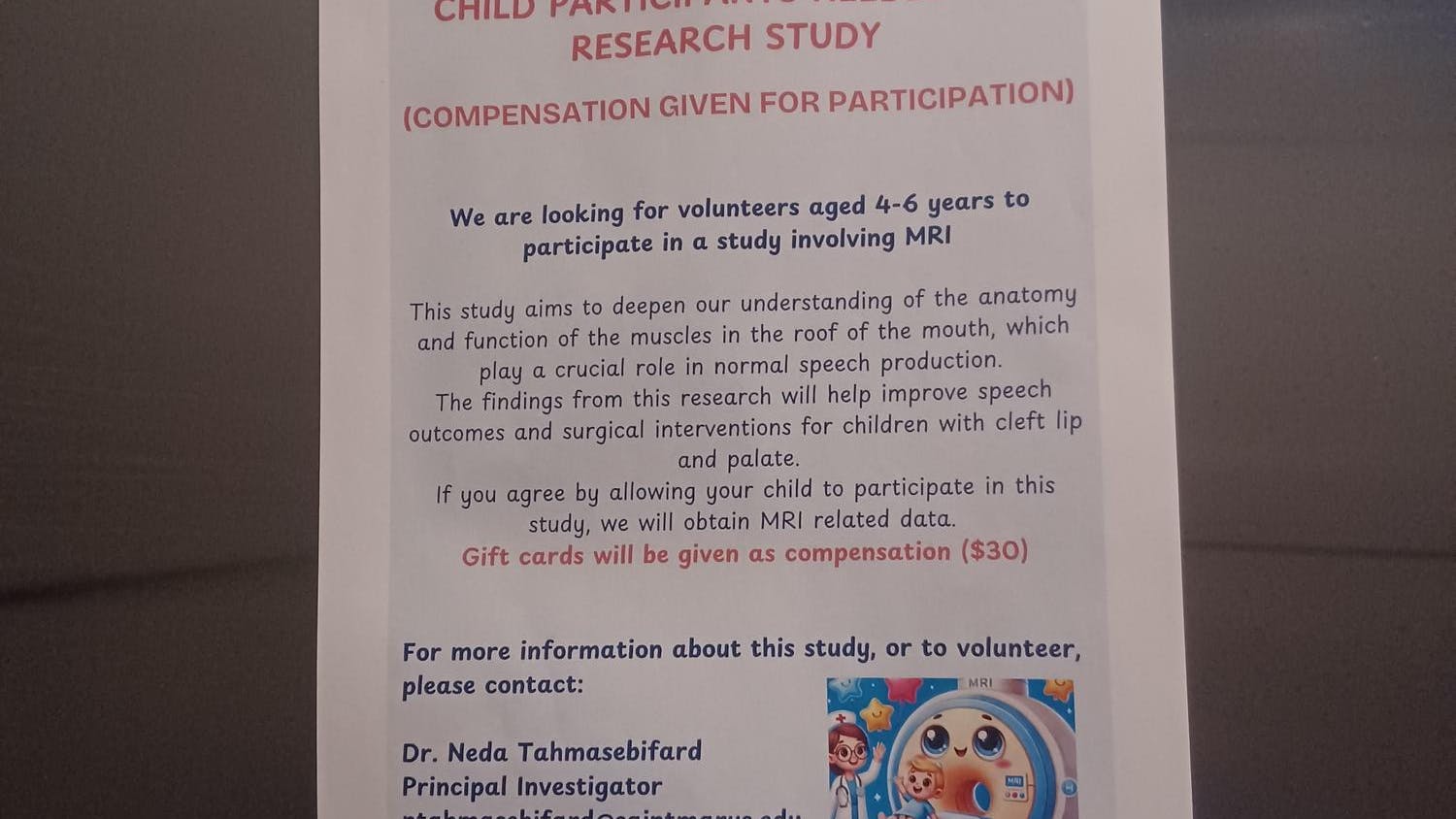The Notre Dame Knights of Columbus council hosted a dinner to benefit Christian refugees Saturday night, highlighted by the keynote address from Professor Gabriel Said Reynolds on the role of Islam in the persecution of Christians in the Middle East.
As the West looks at ongoing developments in the Islamic world, the gravity of Christian persecution is not to be underestimated, Reynolds said.
"It seems that genocide is not too strong of a word,” he said.
It is crucial, Reynolds said, to understand why these atrocities against Christians are happening in areas where Muslims constitute the majority.
“Much of the Christian persecution is taking place in the Islamic world, and it’s not taking place in just one area of the Islamic world,” Reynolds said.
Reynolds said it is important to recognize the threat of Islamophobia while also acknowledging the widespread persecution of Christians — not just in one specific place in the Islamic world, but across the world from the Middle East to sub-Saharan Africa to Southeast Asia.
“We have an issue that we need to address very clearly and soberly, not in way that invites Islamophobia or Islam-bashing,” he said.
In order to explain the current situation, Reynolds discussed important theological concepts involved, saying the complex web of political, economic and other causes that contribute to Christian persecution went beyond the scope of the talk. Therefore, Reynolds said it is vital to understand what Islam says in theory and then address the practical reality.
Reynolds said Americans often have a faulty understanding of the Islamic word “sharia,” because it is typically used as if it were a concrete set of laws or specific system. Rather, Reynolds said sharia is a fundamental principle behind the Islamic faith that God has a plan for everything.
“Sharia is the divine will for individual humans and for human societies,” Reynolds said.
Underneath the concept of sharia, Reynolds said Islam holds three basic tenets: that Islam is a natural religion, that it has comprehensive scope and that is the only true religion.
By natural religion, Reynolds said he means Muslims believe Islam is in harmony with human nature and that all humans are born Muslim.
“Many converts will say ‘I never converted to Islam, I reverted to Islam,’” he said.
Reynolds said the nature of Islam and its many teachings is surprisingly vast for many Christians because it covers nearly every facet of human endeavors, from daily life to broader topics such as politics and science.
“Islam will not only teach you how to pray, it will teach you how to dress, how to eat, how to run an economy, how to run affairs of state,” he said.
Reynolds said he risks stating the obvious when he claims Muslims believe Islam is the true religion, but it is important to understand how strong and absolute their faith is. In contrast, Reynolds said when he asks his undergraduate theology classes whether or not they believe in Catholicism, many say yes, but add self-conscious explanations that there is truth and good in other religions.
“Muslims don’t have this sort of uncomfortable attitude as regards to the truth of their religion,” he said.
Under sharia, Reynolds said Jews and Christian are supposed to be offered certain protections and granted a special status as “people of the book,” in contrast to polytheists and atheists.
“Because they have been included in the divine book or scripture of revelation that God has spoken to their prophets, they’re close enough to Islam that they can be tolerated in an Islamic state,” Reynolds said.
However, Reynolds said this religious tolerance is quite limited, especially in regards to public expressions of faith that are not in accordance with Islam.
“Jews and Christians can be tolerated. They have freedom to worship, they can go their churches and their synagogues, they can do their own marriages, they can do their own divorces all of that — but they can’t sow the seeds of discord,” he said.
In reality, Reynolds said the implications and consequences of sharia can lead to fundamentalism and ultimately persecution, referencing groups like Boko Haram and ISIS that derive their ideologies from a specific reading of Islam.
“The phenomenon that we’re dealing with, with global jihad or Islamism, is exclusively Sunni and never Shi'ite,” Reynolds said.
Reynolds said Sunni Islam places a strong emphasis on defending the faith, which is often used as justification to ban public statements or anything considered offensive to Islam. For example, he said it is a capital offense to insult Islam in Pakistan. However, Reynolds said the religious devotion in Islam has positive aspects that Christians should embrace.
“This piety often is sort of beautiful. It’s people who love God and find meaning in their religious life,” he said. “They’re obedient to God, maybe in different ways than Catholics. They’re deeply devoted to prayer. Their example of prayer and fasting can be inspiring.”
Reynolds concluded his talk by suggesting ways in which Christians in the West can help the persecuted. He encouraged people to donate to organizations, such as the Knights of Columbus, that support refugees. However, Reynolds said it is important that organizations helping the persecuted in the Middle East do not exclusively help Christians.
On a personal level, Reynolds said Christians should to get know Muslims, pray for them and love them, in addition to contributing to the new evangelization and focusing on getting young adults more involved in the life of the Church.
Read More
Trending









